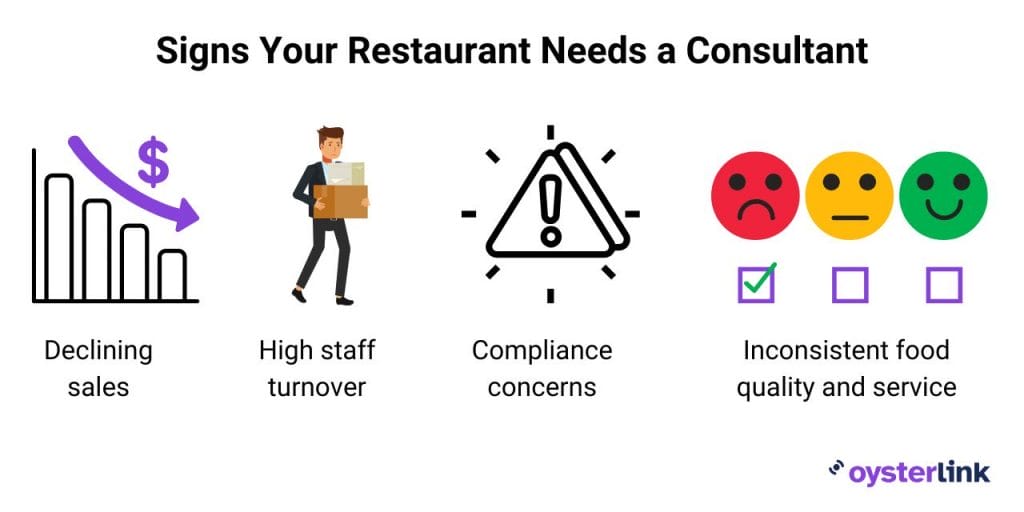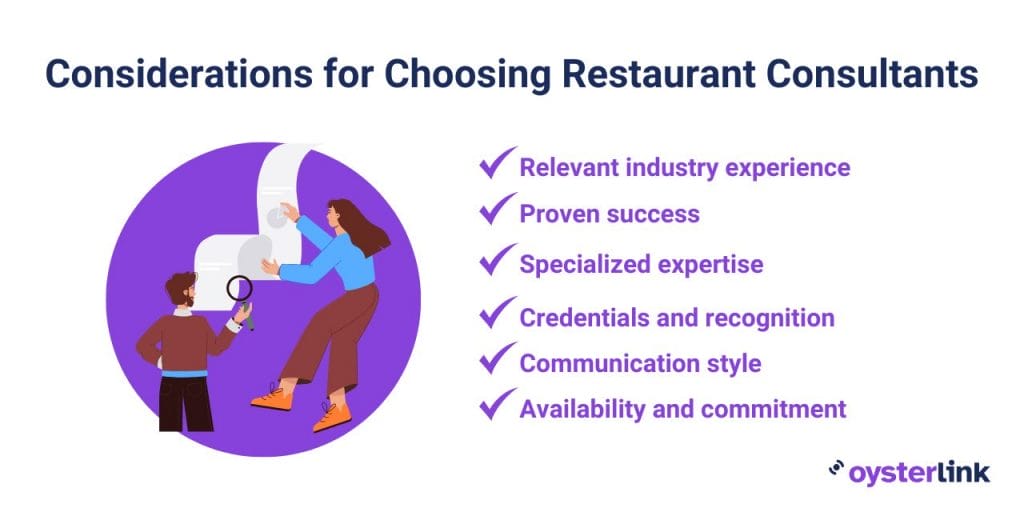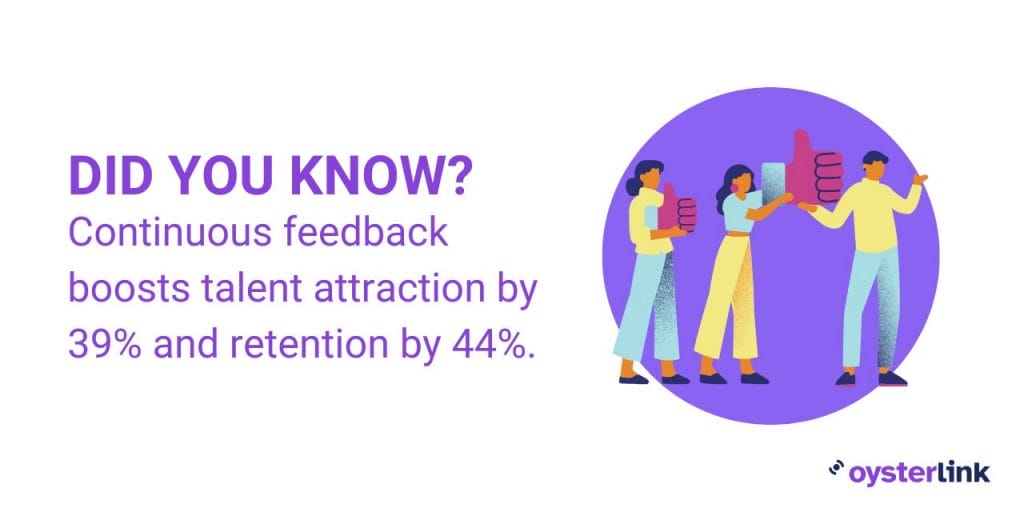Whether you’re looking to improve marketing and branding, develop a solid sales and operations strategy or set up efficient supply chain management and inventory systems, a Restaurant Consultant can help.
This article will guide you through hiring the right Restaurant Consultant to address your unique needs and drive your business forward.
You’ll also find bonus content that explains what to expect during the consultation process, offering valuable insights to get the most out of your partnership.
Understanding the Value a Restaurant Consultant Brings
Restaurant Consultants are industry professionals who bring a wealth of experience and specialized knowledge.
These experts offer valuable insights and strategies to help restaurant owners optimize their operations, increase profitability and navigate the ever-changing landscape of the food service industry.
Their skill set may include:
- Concept development and branding
- Menu engineering and pricing strategies
- Financial analysis and budgeting
- Staff training and management
- Marketing and customer engagement
- Operational efficiency improvements
- Compliance with health and safety regulations
Restaurant Consultants can tailor their services to address specific challenges or provide comprehensive support across multiple areas of your business. Their goal is to help you achieve sustainable success and growth in the competitive restaurant industry.

How To Find the Right Restaurant Consultant
Selecting the right Restaurant Consultant for your business is a crucial step in the hiring process. With numerous consultants and consulting firms available, it’s important to approach the search methodically to find the best fit for your specific needs and goals.
Start by identifying the type of Restaurant Consultant you need. The restaurant consulting industry offers a diverse range of specialists, each focusing on specific aspects of restaurant operations and management.
General Restaurant Consultants
General Restaurant Consultants offer a broad spectrum of services, covering multiple aspects of restaurant operations. They typically have extensive experience in the industry and provide comprehensive support across various areas, including:
- Overall business strategy
- Concept development and refinement
- Operational efficiency improvements
- Financial analysis and planning
- Menu development and pricing
- Staff training and management
- Marketing and branding
These consultants are ideal for restaurant owners seeking holistic guidance or those unsure which specific areas of their business need the most attention.
Specialized Restaurant Consultants
For more targeted assistance, you might consider hiring a specialized consultant. Some common types of specialized Restaurant Consultants include:
| Consultant Type | Focus Areas |
|---|---|
| Menu Development Consultant | Menu creation/optimization, food cost, pricing strategy, ingredient sourcing and culinary trends |
| Financial Consultant | Budgeting, cost control, profitability analysis and financial planning |
| Marketing and Branding Consultant | Marketing strategies, brand identity and promotional campaigns |
| Operations Consultant | Streamlining processes, improving efficiency and enhancing operational performance |
| Technology Consultant | Restaurant management software, POS systems and technological solutions |
| Compliance Consultant | Health, safety and regulatory requirements |
| Design Consultant | Layout optimization, interior design and ambiance creation |
Create a Clear Job Description
Before hiring a Restaurant Consultant, you need a clear job description that outlines the scope of work, expectations and deliverables. This will help potential candidates understand the role and ensure alignment with your needs.
Below are the elements to include in your Restaurant Consultant job description:
- Title: Specify that you are hiring a Restaurant Consultant and outline the focus area.
- Overview of the project: Describe the specific issues or challenges your restaurant is facing that you need help with.
- Consultant responsibilities: Be specific about what tasks you expect the consultant to handle.
- Qualifications and experience: List the necessary qualifications, such as industry experience, educational background and expertise in particular restaurant areas.
- Timeline and deliverables: Define the expected project timeline, including milestones and deadlines.
- Budget/compensation: Outline your budget range or fee expectations for the consulting services.
This step ensures that both parties are on the same page about what is expected and can help you filter out candidates who may not have the right expertise.
Post the Job Description
Once you’ve crafted the job description, the next step is to post it where potential consultants will see it. You want to maximize visibility to attract the right talent for the job.
Consider the following platforms to post your consultant job:
- Industry-specific job boards: Websites like Hcareers, Culinary Agents and OysterLink cater to the hospitality industry and can be great places to find experienced Restaurant Consultants. With OysterLink, you can create a hospitality job post for FREE and access valuable resources such as labor law information, job description templates and a list of interview questions.
- Professional networks: Utilize LinkedIn to post the job description and search for consultants who have experience in the restaurant industry.
- Referral programs: Ask for referrals from other business owners, industry colleagues or consultants you trust. Referrals can help you find consultants with proven success in similar situations.
Evaluate Their Experience and Expertise
Once the job description is posted, manage the application process by reviewing candidates and evaluating potential consultants.
It’s important to thoroughly assess their qualifications and experience to ensure they are the right fit for your restaurant’s needs.
Key factors to consider include:
- Relevant industry experience: Look for consultants who have worked with restaurants similar to yours in terms of size, concept and market segment. Their experience should be closely aligned with your restaurant’s operations, ensuring they understand the specific challenges you face.
- Proven success: Request case studies, references or examples of their previous work to assess their impact on other businesses. Ask for success stories that demonstrate how they’ve helped restaurants achieve goals like increasing profitability, streamlining operations or improving customer engagement.
- Specialized expertise: Ensure that the consultant’s skill set aligns with your restaurant’s specific needs. Whether it’s financial management, menu development, operational efficiency or marketing strategies, their expertise should address the areas where your restaurant requires support.
- Credentials and recognition: Verify any relevant certifications, memberships in professional organizations or industry recognition. This can indicate their level of expertise and professionalism within the restaurant consulting field.
- Communication style: Assess how well the consultant communicates with you during the interview process. Their ability to explain strategies clearly and collaborate with your team is crucial for a successful partnership.
- Availability and commitment: Confirm the consultant’s availability to meet your project timeline and the resources they can allocate to your restaurant. It’s essential that they have the capacity to dedicate the time and focus needed to address your challenges effectively.

Conduct Interviews and Assess Fit
Conducting interviews with Restaurant Consultants requires tailoring your questions to their specific area of expertise. Depending on your restaurant’s needs, you’ll want to assess different skill sets:
- Technical expertise: For consultants focused on operational efficiency, ask questions that gauge their knowledge of restaurant operations, financial planning and compliance with industry standards.
- Menu development: If you’re looking for a consultant to improve your menu or pricing strategies, inquire about their experience with menu design, pricing models and staying up-to-date with food trends.
- Skills and experience: Regardless of specialization, it’s essential to explore their professional background, problem-solving capabilities and how they approach customized solutions to the challenges unique to your business.
By targeting your questions to the consultant’s area of expertise, you ensure a more effective evaluation process.
Finalize the Deal and Ensure Success
Once you’ve identified the right candidate, it’s time to move into the final phase: negotiation and making an offer.
Before committing to a long-term contract, it’s wise to begin with a trial or pilot project.
This smaller, lower-risk engagement allows both you and the consultant to assess compatibility and performance before fully committing.
For example, you might ask the consultant to focus on a specific area of your restaurant operations, such as menu optimization or social media marketing.
This trial approach helps ensure the consultant’s methods align with your goals and that they can deliver tangible results.
As you move forward, establishing a collaborative relationship is crucial.
Consultants bring an external perspective, but it’s essential they work closely with you and your team to align their strategies with your restaurant’s culture and objectives.
Open communication, regular feedback and a willingness to adapt are all key elements of a successful consultant partnership.
Lastly, once the consultant begins their work, it’s important to track the results and measure return on investment (ROI).
Set clear metrics and key performance indicators (KPIs) to gauge progress in areas like profitability, customer satisfaction, and operational efficiency.
Regularly assessing performance metrics will help you determine whether the consultant is meeting the goals established at the outset. If their work is driving positive results, you’ll have a clear picture of the value they bring to your restaurant.
Moreover, companies that implement continuous performance feedback are 39% more effective at attracting top talent and 44% better at retaining it. This underscores how consistent evaluation not only helps track progress but also strengthens relationships, ensuring that both parties are aligned and committed to long-term success.

Bonus: What To Expect From the Consultation Process
Working with a Restaurant Consultant is fundamentally different from managing your restaurant’s daily operations. Unlike Restaurant Managers, consultants bring an external perspective and specialized expertise aimed at driving specific improvements in your business.
To ensure a successful partnership, it’s important to understand the consultation process, as it can differ from the typical management approach. Knowing what to expect at each phase — from initial assessment and goal-setting to strategy development and execution — helps you align your vision with the consultant’s expertise.
By being prepared for each step, you can maximize the value of their guidance, minimize potential disruptions and ensure the improvements they implement are sustainable in the long term.
While the specifics may vary based on the consultant and project, the general framework is largely consistent. Here’s what you can expect:
1. Initial assessment and goal setting
The consultation process typically starts with a thorough understanding of your restaurant’s current situation:
- Discovery meeting: The consultant will sit down with you and key team members to discuss the business, challenges and goals.
- On-site observation: The consultant often spends time observing your restaurant’s operations firsthand to gain insight into workflows and identify areas for improvement.
- Data collection: The consultant may request financial statements, sales reports and other relevant documents to aid in their assessment.
- Goal definition: From this initial assessment, you and the consultant will work together to define measurable goals for the consultation.
This phase sets the groundwork for the entire consultation, ensuring that both you and the consultant are aligned on the objectives and expected outcomes.
2. Developing and implementing strategies
After the initial phase, the consultant will create and help implement strategies based on your restaurant’s needs:
- Strategy formulation: A customized plan will be developed to address the challenges and goals identified.
- Presentation and feedback: The strategies will be presented to you for review and input.
- Implementation planning: A detailed plan with timelines, responsibilities and resource allocation is crafted.
- Execution support: Depending on your arrangement, the consultant may assist with hands-on support as the strategies are executed.
- Training and knowledge transfer: Staff training is provided to ensure that new systems and processes are sustainable in the long run.
Effective communication during this phase is crucial to ensure smooth execution and adaptation of strategies.
3. Monitoring and evaluation
In the final stage, the consultant will assess the success of the strategies implemented:
- Performance tracking: KPIs will be used to evaluate the success of the changes.
- Regular check-ins: Periodic meetings will ensure that progress is on track and any adjustments can be made as needed.
- Final evaluation: A comprehensive review at the end of the engagement will measure overall success and identify areas for further improvement.
- Future planning: Based on the results, the consultant may provide recommendations for ongoing improvements.
By understanding this structured process, you can actively engage with your consultant and maximize the value of your investment in their expertise.
Common Pitfalls To Avoid When Hiring a Restaurant Consultant
While hiring a restaurant consultant can be a valuable investment, there are several common pitfalls to avoid to ensure a successful engagement:
| Pitfall | Description | Solution |
| Setting unrealistic Expectations | Expecting quick fixes or immediate dramatic results | Have a candid discussion to establish realistic timelines, outcomes and the effort required — not just from the consultant, but also from you as the employer |
| Assuming that a one-size-fits-all solution will work for your unique business | ||
| Not committing to the necessary level of involvement from both sides | ||
| Poor communication and collaboration | Withholding critical information from the consultant | Be transparent about challenges, remain open to feedback and schedule regular check-ins. Encourage your team to participate and engage with the consultant’s recommendations. |
| Resisting feedback or failing to follow through on agreed strategies | ||
| Not actively involving your team in the process | ||
| Neglecting long-term sustainability | Focusing only on short-term fixes, such as quick wins, without considering lasting changes | Develop strategies that balance immediate results with long-term success. Invest in training staff to maintain new systems and encourage continuous improvement. |
| Failing to implement strategies that ensure long-term success |
Being aware of these pitfalls and addressing them proactively will help maximize the value of your consultant and set the stage for ongoing success.

Written by Rea Gierran
With a background in Communication Arts, Rea’s expertise lies in content marketing and copywriting. Her published works can be seen on online news websites such as Rappler and Adobo magazine. Outside of her work, Rea takes on the role of a “momager” for Shiro, a TikTok dogfluencer.

Edited by Marcy Miniano
Marcy is an editor and writer with a background in public relations and brand marketing. Throughout her nearly decade-long career, she has honed her skills in crafting content and helping build brands across various industries — including restaurant and hospitality, travel, tech, fashion and entertainment.




